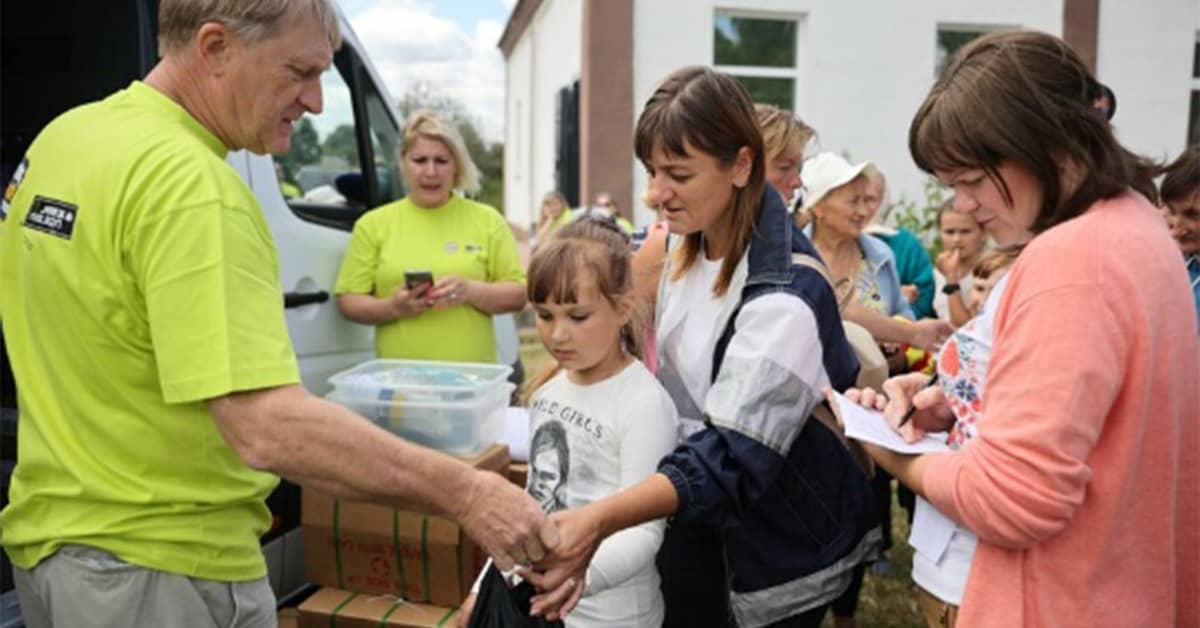If you spent time on the Grand River recently, you may have noticed some of the signs posted along the way asking people to fill out a survey.
The survey is being conducted by the Friends of the Grand River in partnership with the University of Guelph.
The organization is a non-profit driven by volunteers dedicated to working for the benefit of the river. They plant trees, pick up garbage, stock fish, work on stream restoration projects and facilitate sampling and monitoring of the river.
Volunteers with the organization have partnered with the University of Guelph to conduct an economic impact survey to understand how much the Grand River contributes to the local economy.
“It’s a major draw to the communities of Fergus, Elora, West Montrose, the conservation areas, all that sort of stuff. The river is kind of the centerpiece of all of those things. And trying to understand what the economic impact of that river is and the draw of tourism to the local area, is really what we’re after,” said Rob Voisin, chair of the Friends of the Grand River.
People can fill in the survey and be entered to win a $250 gift card to their favourite business in Centre Wellington Township.
Voisin says, anecdotally, the people in the club who spend time on the river, especially anglers, have noticed a decline in its overall health. He argues that in order to gain the support of locals and the government to invest in the river’s health, they need to demonstrate its importance to the economy.
“Certainly the organization’s looking for more investment in stream rehabilitation support, bank stabilization, continued fish habitat work. This river could use millions of dollars of investment just on the fishery alone, let alone the recreational use of it,” said Voisin.
“When Friends of the Grand River is talking to, say, political parties, fundraising groups, whatever it is, it’s nice to say that a lot of people love the river, it’s a really good fishery and all, but all of that is just kind of blah, blah, blah to most politicians or funding groups, or the Ministry of Natural Resources, government groups, whatever.
“But if we can come to the table and say, ‘here’s a fairly quantifiable study based on fact, that the local economy is generating – let’s make up a number of $3 to $5 million a year – because of the health of this river, and the river health may potentially be declining if we don’t put more investment into it, then, I think it changes the conversation.”
Anyone is welcome to fill out the survey, which is available on the Friends of the Grand River website, www.friendsofthegrandriver.com.
Nicolas Brunet is an associate professor in the department of rural planning and development at the University of Guelph. His lab is running the socioeconomic study for the Friends of the Grand River.
He says the organization does a fair amount of volunteer work on the Grand between Fergus and West Montrose, including fish stocking, “and there’s not a lot of appreciation of that, (or) of that fishery itself beyond conservation-related stuff,” he said.
“They’re introducing brown trout back into the ecosystem. So they do a stocking every year, they stock the river. That’s the reason the fishery is so popular. There are people that come from all over the place to come and fish. And so my and Rob’s idea was, ‘well, how do we highlight that value beyond something that might be good for conservation?’” said Brunet. “So we developed a survey that was going to try to assess the socioeconomic benefits of the fishery, so of the fishery as being an attractant to the area for tourism specifically.”
Voisin says that Friends of the Grand River conducted angler and water usage surveys for the past three years, with about 150 responses every year. The results of these surveys are anecdotal, but Voisin says anglers and other users are noticing the river is changing and that there could be issues with its health.
“One thing that they’re seeing is that despite their best efforts, the Grand River is not going uphill at the moment,” said Brunet. “It’s been kind of going downhill more and more, and if you look at what’s happening around here, rampant development in the watershed, right up against the river. Not a lot of consideration about runoff and what ends up in the river, and that’s having impacts.”
To try and quantify these negative, anecdotal trends, Friends of the Grand River also partnered with the school of environmental sciences at the University of Guelph to conduct scientific studies. They’ll be monitoring things like the population of insects and invertebrates to understand more about the river’s health. This will help the group form a plan to address issues.
“We can’t build an action plan until we know what the root cause is,” said Voisin. “And really, that’s the stage we’re at. We kind of know, because we see it visibly, people are seeing it, anglers are seeing it so we kind of know something’s off, but we have no idea what it is. So we can’t attack it properly until we know what’s going on.”
“It’s great to have a bunch of volunteers like us planting trees and picking up garbage and doing all that sort of stuff. But the reality is this river probably needs more attention than it’s going to get right now until we can frame it in a way that kind of whets the appetite of potential funding bodies.”









